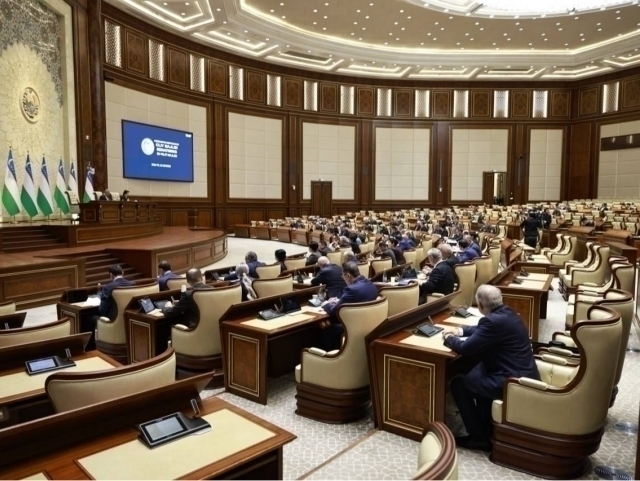Uzbekistan updates law on State secrets for the first time in 30 years
Local
−
23 October 2024 8802 4 minutes
For the first time in nearly 30 years, the Republic of Uzbekistan is updating its Law "On Keeping State Secrets," which was initially adopted on May 7, 1993. The revised draft law was unanimously approved by the Senate at the fifty-ninth plenary session of the Oliy Majlis Senate on October 23.
Talibjon Madumarov, Deputy Chairman of the Senate Committee on Defense and Security Affairs, stated at the session that experts had reviewed the old version of the law and identified several areas requiring improvement and expansion.
The previous law lacked clear definitions for the powers of relevant bodies responsible for protecting state secrets, levels of confidentiality, terms for declassifying information, and guidelines for obtaining access to state secrets. As a result, the use and handling of state secrets were inconsistently interpreted in legal documents based on the existing law.
Madumarov highlighted that the procedures for managing and safeguarding state secrets, ensuring confidentiality, and regulating classified operations were governed by several secret decisions from the Cabinet of Ministers. These decisions’ confidentiality has prevented citizens, foreign nationals, and stateless persons in Uzbekistan from fully understanding their rights concerning state secrets.
The current law also fails to regulate procedures for granting access to state secrets, defining non-classified information, or establishing a system for the mutual exchange of state secrets between countries. These omissions contradict today's emphasis on openness and information exchange within the country.
Moreover, the existing legislation does not specify timeframes for declassifying information, leading to the accumulation of outdated documents in archives with unresolved statuses. To address these and other issues, the State Security Service developed a new version of the Law "On State Secrets," which was subsequently passed by the legislative chamber.
"In today's globalized world, where information technologies permeate every aspect of society, safeguarding confidential information and protecting state security are increasingly critical. The key criterion for protecting state secrets lies in improving the legal framework for safeguarding informants," Madumarov said.
Key changes in the updated law:
1. Unified policy and clear competencies: The President of Uzbekistan will now determine the country's unified policy on state secrets, with their use regulated by the state. The specific responsibilities of the State Secret Service and organizations that use state secrets will also be clearly defined. Previously, only the powers of the State Secret Service were outlined in relation to state secrets.
2. Four categories of State secrets:
- Military affairs
- Foreign policy and foreign economic matters
- Intelligence and counter-intelligence operations, as well as other areas related to state security
- A limited set of economic, educational, and technical fields, as specified
While these categories were previously listed in confidential guidelines approved by the government in 1994, making this list publicly available aligns with the government's current transparency policies.
3. Eligibility for access: The right to access state secrets is being reinforced for individuals aged 18 and above. Non-citizens of Uzbekistan may be granted access based on compliance with international agreements and Uzbek law.
4. Post-access regulations: The updated law also introduces stricter regulations on travel abroad for individuals whose right to access state secrets has expired. It establishes new rules for the declassification of state secrets and provides for the organization of training courses to enhance the skills of state employees and others involved in handling state secrets.
5. Privileges and responsibilities: The law further clarifies the privileges granted to those authorized to access state secrets, as well as the guarantees supporting their activities. It also outlines modern mechanisms for safeguarding state secrets, considering advancements in information and communication technologies.
6. Non-classified information: The law defines a list of non-classified information and introduces penalties for unjustly classifying information. It prohibits the classification of information that could endanger the personal safety of citizens as state secrets.
In concluding his speech, Talibjon Madumarov referenced a statement by Abraham Lincoln regarding national security. He emphasized, "The strength of every country depends on its information security. If state secrets are revealed, the fundamental system of the state will be compromised."
It should be noted that during the Legislative Chamber session of the Oliy Majlis of Uzbekistan held on August 20, the updated Law "On State Secrets" was adopted, replacing the previous law "On Keeping State Secrets." The draft law was subsequently sent to the Senate for approval.


